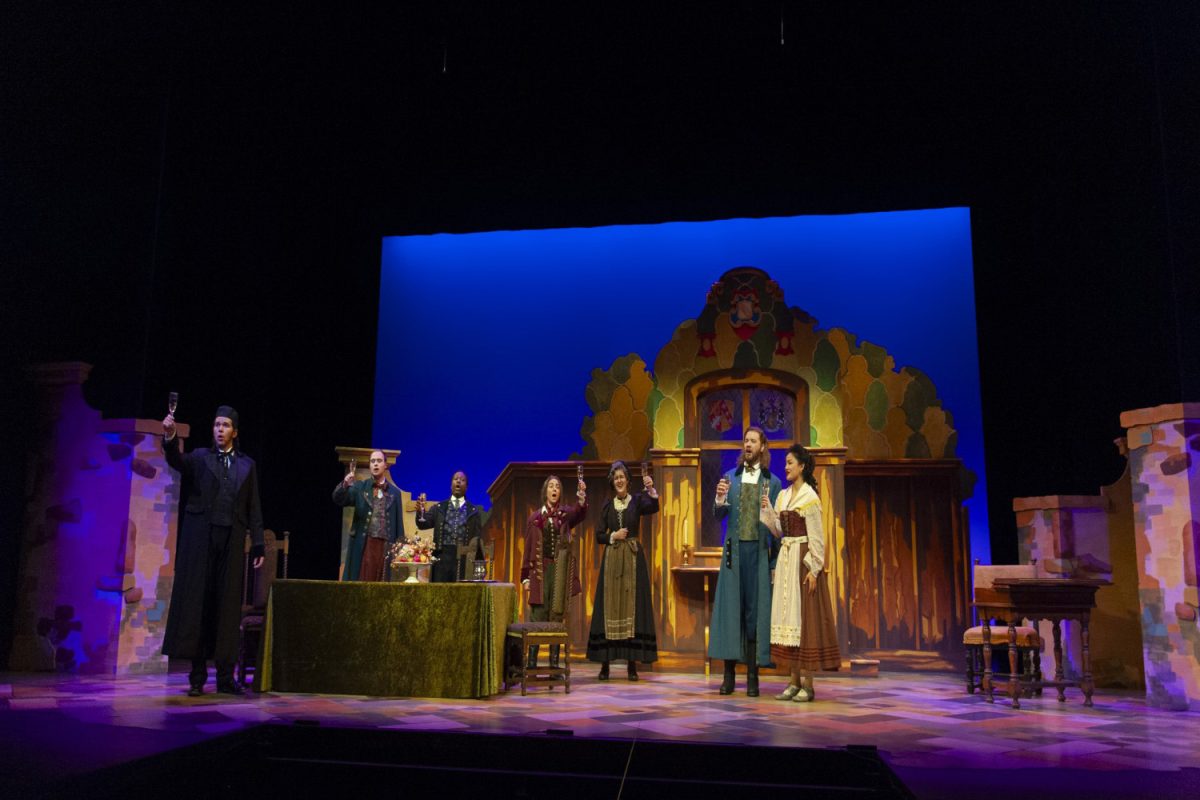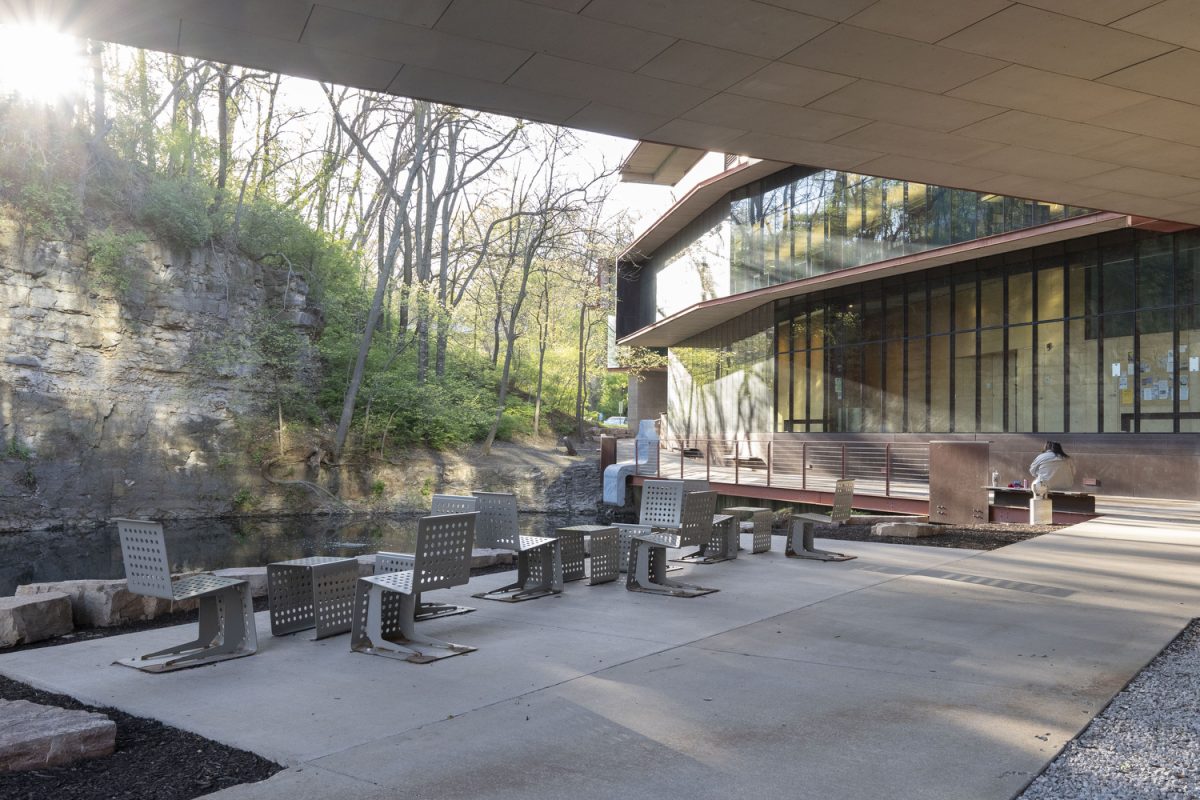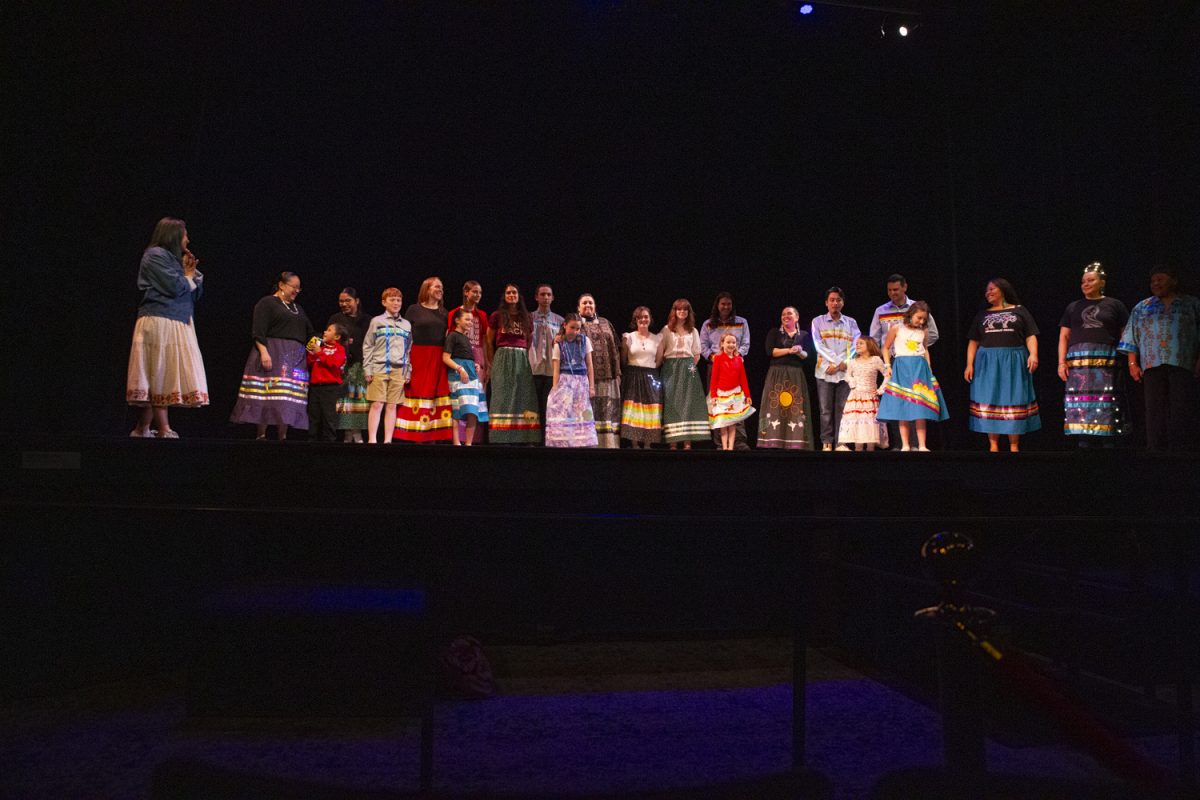The drama of love and longing often can only be conveyed through the extravagance of opera, and the University of Iowa’s production of “L’amico Fritz” by Pietro Mascagni brought the lives of 17-century lovers to the stage of the Coralville Center for the Performing Arts on Oct. 13 and 15.
“L’amico Fritz” is a testament to the adage that love creeps up on you. The wealthy bachelor Fritz Kobus proudly announced he would never fall in love, yet only a few days later became sick with it. His longing for the beautiful and charming Suzel was accompanied by a grandiose orchestra, a full chorus, and a cast of characters.
It’s a story that seems almost cliche, but to director and conductor Wayne Wyman, it’s timeless.
“We keep loving [and] we keep hating, unfortunately. We keep being angry, we keep being sad, we keep gaining beautiful things, we keep losing beautiful things,” Wyman said. “All of these are [experiences] that make up our lives just as they have since humans have existed.”
In his director’s note, Wyman said he was surprised the dramatic verismo musical language was paired with the light and humorous story: “We all experience our own reality and truth from our own point of view,” he wrote.
For the audience, Fritz has fallen in love. To Fritz, though, it was a total paradigm shift. The dramatic nature of verismo opera manages to capture the feeling of falling in love in all its wonder and terror.
Opera is one of the oldest yet seemingly inaccessible art forms, especially in the United States. Wyman supposed this is because most small towns in Italy and Germany still have functioning opera houses whereas opera houses in the U.S. are typically located in major cities.
The Iowa PBS reported that between the late 18th and early 20th centuries, there were about 1,500 opera houses in the state of Iowa. By 2005, that number dwindled down to around 300.
Nearly 200 Iowa City and Coralville residents attended the opera’s matinee performance on Oct. 16.
Among those was David Cyzak, a UI visiting assistant professor of oboe. Cyzak felt that seeing something live is something special, no matter the performance.
“Opera is a living movie, and so when a powerful opera does an amazing scene with a thousand people or a hundred people on stage, it conveys this immense power,” Cyzak said.
Coralville couple Bill Schwarz and Molly Schwarz were also in attendance during the Sunday performance.
Molly Schwarz is finishing her doctorate in educational policy and leadership studies but grew up going to a local theater with her dad and decided to see more live performances this year as a form of relaxation.
“If I don’t make time to do this, then I’m just working all the time, so it’s a really great way to escape,” she said.
Opera has survived for centuries because it is a living art. It brings what Cyzak called, “a slice of history” to life for the modern audience.
“Experiencing great art makes us say ‘I feel alive,’” Wyman said. “We say that when we experience something that makes us feel something, and opera has a great ability to do that.”















